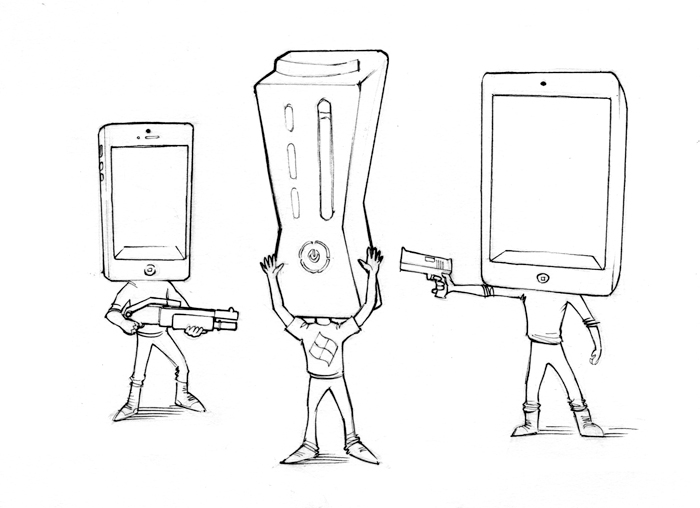For decades, gamers have grown to love and appreciate the ease and convenience that a dedicated game console provides. No drivers to install. No system requirement concerns. Simply put in the disc (or cartridge) and play. This past generation, we've begun to see some of the wonderful perks of console gaming we once took for granted slowly melt away, as console manufacturers create gaming machines that have an unsettling amount in common with PCs and other entertainment devices. Patches, firmware updates, downloadable content, multimedia applications, and more are all now a part of the picture, and while there's plenty of good that comes along with such additions, the inner child in me yearns to return to a much simpler time.
But that will never happen.
The market is changing drastically and at an incredible pace. Gaming consoles are no longer merely boxes that play games; they stream videos, let you browse the internet, allow you to chat with your friends, and so on. Even Nintendo, the gaming company most resistant to change, is making steps (if ever so small) in this direction. Let's face it, if the Big N, a company stunted by its stubborn adherence to tradition, can't fight it, no corporate entity can.
So that's just it. The way we play video games are changing. The market is growing as smartphone and tablet games manage to sink their claws into unsuspecting casual consumers that would have never considered themselves gamers. We're seeing more free-to-play games, more connected, social experiences, and new methods of delivery that provide a new level of ease and convenience to the consumer. As such, the handheld market has changed drastically, and if that's any indication of where traditional home console are headed, you'd better get ready for some major changes.
So what exactly am I trying to say? Is the console model really on its way out? Are high-powered phones and smart televisions truly the way of the future? Obviously we'll still have consoles in the traditional sense for at least another ten years, but after that, who knows? The PlayStation 4's primary function is playing games, but it will undoubtedly serve as a home to dozens of other features, and there's talk that the next Xbox could very well serve as a cable box of sorts that also "just happens" to play games.
Then there's Nintendo, and honestly, I don't even know where to begin with them at this point. They are beginning to feel more and more like a toy company with each passing year, relying on a new gimmick that may or may not work in hooking consumers. The Wii U hasn't caught on just yet and may never prove to be a major success for the Big N, but the company has a bank loaded with cash, so you can expect them to march to the beat of a different drummer for many years to come.
Sony, however, has a whole lot more going on. The company is pushing its mobile and television lines quite hard in conjunction with their gaming division, and if its new approach to streaming with Gaikai and digital distribution through PlayStation Mobile is any indication, Sony may very well be looking to meld all three sectors together and expand the PlayStation platform to any internet-connected device. If your Sony Bravia or PlayStation-enabled phone can stream any game at the press of a button, why have a separate box under the television or a dedicated gaming handheld?
We still don't really know what Microsoft's strategy is, so I'll reserve judgement on them for the time being. That said, it is worth noting that the Xbox manufacturer is a software company at its heart, so don't expect them to stay rooted in the traditional console market forever. The minute the company finds a more profitable and efficient way of delivering games and other media, they'll do it.












